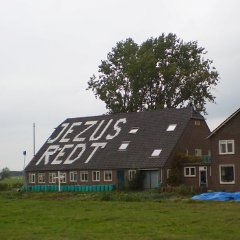 Hardly any Dutch website adheres to the new cookie law that came into force last Tuesday, online tech mag Webwereld reports.
Hardly any Dutch website adheres to the new cookie law that came into force last Tuesday, online tech mag Webwereld reports.
The law, which is a strict implementation of the EU cookie directive, aims to protect website visitors’ privacy by making tracking illegal. Tracking is a way of building a profile of you and your likes by monitoring which websites you visit. This profile can then be used to tailor advertisements to your tastes, or for far more heinous purposes.
Among the larger sites only De Telegraaf has put up a banner informing visitors that it uses cookies, and that they can opt out. As Webwereld points out the banner is not in compliance with the law, which states that website owners must explicitly ask permission for every tracking cookie a site uses.
Enforcement agency OPTA says it is not their job to determine the contours of the law. “We expect the market to take care of that.” The agency told Webwereld it will start enforcing the law right away, but will first focus on “sites with dangerous cookies, and sites with cookies that are hard to remove.”
Arnoud Engelfriet points out that even the government is still serving cookies without permission at rijksoverheid.nl.
24 Oranges is currently looking at its cookie use and responsibilities before the law. As you may gather from the above article, this matter is more complex than it seems at first sight, so apologies for the delay.
In the meantime if you’re worried about your privacy—as you should—consider disabling third-party cookies in your browser and installing ad blockers. Neither method is perfect as far as I know.
(Screenshot: the Telegraaf cookie banner)

 A tiny victory for real globalization. After years of pressure by Dutch consumer watchdog Consumentenbond, American electronics manufacturer Apple has finally adapted its warranty for the Netherlands to make clear that is bound by Dutch law.
A tiny victory for real globalization. After years of pressure by Dutch consumer watchdog Consumentenbond, American electronics manufacturer Apple has finally adapted its warranty for the Netherlands to make clear that is bound by Dutch law.  It took a couple of lawsuits to put their prospective gatekeepers into place, but both the Dutch postal code data and the Dutch road map data have been set free.
It took a couple of lawsuits to put their prospective gatekeepers into place, but both the Dutch postal code data and the Dutch road map data have been set free. A type of crime that I had not heard of before is that Dutch teenagers are being forced by peers to buy them expensive mobile phone subscriptions. Back in February consumer watchdog show
A type of crime that I had not heard of before is that Dutch teenagers are being forced by peers to buy them expensive mobile phone subscriptions. Back in February consumer watchdog show There seems to be a lot of
There seems to be a lot of  Two weeks ago the court in Amsterdam held that trying to get your competitor’s Twitter followers to follow you is indeed perfectly legal.
Two weeks ago the court in Amsterdam held that trying to get your competitor’s Twitter followers to follow you is indeed perfectly legal. Former parliamentarian James Sharpe of the right-wing extremist Freedom Party (PVV) won an injunction against free newspaper Spits last week.
Former parliamentarian James Sharpe of the right-wing extremist Freedom Party (PVV) won an injunction against free newspaper Spits last week. Dutch MPAA representatives Brein have broken the law by removing computer equipment worth hundreds of thousands of euro without a court order, law professor
Dutch MPAA representatives Brein have broken the law by removing computer equipment worth hundreds of thousands of euro without a court order, law professor 
